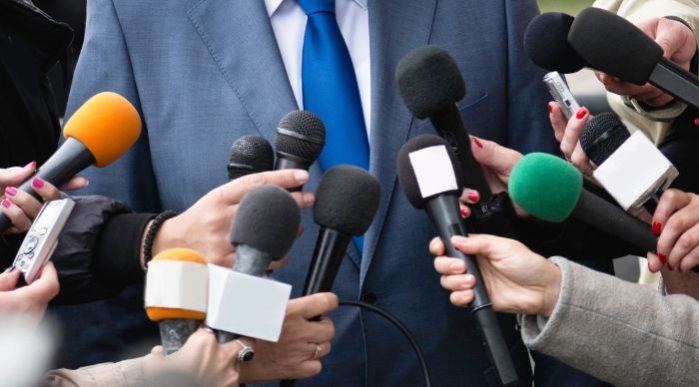

The European news media sectors play a crucial and valuable role in Europe. Yet, they are facing multiple challenges. Partially as a result of the digital shift, with readers shifting to online sources and traditional news outlets losing advertising revenues, the economic sustainability of professional journalism has come under pressure. Many media at the local level as well as those putting their public interest mission before profits, have had to close down, weakening media pluralism and posing risks for the good functioning of democracy.
Topic 1: Journalism Partnerships - Collaborations seeks to help the wider European news media sector become more sustainable and resilient, including small media. Support is foreseen for collaborative projects in and between any news media (sub)sector and/or genre that aim to enhance cooperation, help media adapt to new economic and consumption realities and instil systemic change across that (sub)sector.
The information on this page is for general information purposes only.
Please read the 2026 News Journalism Partnerships Call Document to check all requirements and details.
- Call Number
- CREA-CROSS-2026-JOURPART-COLLABORATIONS
- Publish Date
- Sub-Programme
- Cross sector
- We're here to help
Priorities:
- Projects must focus on ways to develop collaborative transformation, from a business, technological and/or production point of view.
- Projects can aim to develop, inter alia, better revenue and monetisation models, new approaches to audience development, community-building and marketing, development of common professional/technical standards, new types of newsrooms, syndication networks or other models to exchange content/data between news media across the EU, or provide assistance to small media organisations. They can aim to increase efficiency and the quality of reporting through innovative journalistic collaborations. Projects can test innovative production methods and formats, or contribute to high-quality media production standards in other collaborative ways. Projects can aim to increase exchanges of best practices among journalists and optimise workflows for those journalism genres requiring more time and resources.
- Proposals may address one or more of the priorities outlined above, if relevant and based on the needs analysis of the chosen (sub)sector. The proposal should provide this needs analysis and explain how the proposed activities will work towards addressing the identified challenges
- Please read the 2026 News Journalism Partnerships Call Document to check all requirements and details.
- In order to be eligible, the applicants (beneficiaries and affiliated entities) must:− be legal entities (public or private bodies)− be established in one of the eligible countries, i.e.:− Creative Europe Participating Countries:− EU Member States (including overseas countries and territories (OCTs))− non-EU countries: listed EEA countries and countries associated with the Creative Europe Programme (list of participating countries).
- Proposals must be submitted by a consortium of at least three applicants (beneficiaries; not affiliated entities), which complies with the following conditions: at least three independent entities from a minimum of three different eligible countries
- Consortia may include non-profit, public and private media outlets including written & online press, radio & podcasts, TV, etc. as well as other organisations focusingon news media inclunding media associations, NGOs, journalistic funds, and training organisations focusing on media professionals.
- Read the News Partnerships call document to check eligibility and requirements.
Activities
- Activities can include events, online trainings and workshops for media professionals, exchange programmes, mentoring schemes, mapping of best practices, sector-wide development of technical standards, development of guidelines and editorial standards, production of practical guidebooks, development and testing of platforms and technical solutions to exchange ideas and best practices, promotional activities, or other activities that aim to uphold the viability of the sector.
- Sharing of best practices between operators in media markets/countries/regions with different and diverse characteristics (in terms of languages, production volumes, sizes, digitalisation levels etc.) is encouraged, to promote mutual learning.
- Applicants are encouraged to consider activities supporting media sectors lacking the means of adapting to the digital environment.
- Financial support to third parties will be accepted in projects which foresee exchange programmes for journalists and other media professionals, support to attend trainings or events, support to journalists and media outlets for collaborative journalistic projects, support for legal advice, support for the acquisition, development or maintenance of technical tools for collaborative journalism, support for events in these fields and/or prizes for collaboration or innovation. In such cases, applicants must define the terms under which this financial support to third parties would take place and ensure a fair and transparent process. In all cases, the choice of activities should be based on their potential to instil systemic change in the chosen subsector.
- All Partnerships should consider the ecological footprint of the activities they propose, and where relevant, describe the strategies to ensure a more sustainable and environmentally-respectful media sectors.
- Please read the 2026 News Journalism Partnerships Call Document to check all requirements and details.
- Project budget (maximum grant amount) Topic 2: €2,000,000 per project.
- The grant will be a budget-based (actual costs, with unit cost and flat-rate elements). This means that it will reimburse ONLY certain types of costs (eligible costs) and costs that were actually incurred for your project (NOT the budgeted costs).
- The costs will be reimbursed at the funding rate fixed in the Grant Agreement at 80% of the total eligible costs for Topic 1 and at 90% of the total eligible costs for Topic 2.
- Grants may NOT produce a profit (i.e. surplus of revenues + EU grant over costs).
- For-profit organisations must declare their revenues and, if there is a profit, we will deduct it from the final grant amount.
- Please read the 2026 News Journalism Partnerships Call Document to check all requirements and details.
- Please read the 2026 News Journalism Partnerships Call Document to check all requirements and details.
- Applications for this call will be processed through the European Commission's Funding & Tender Opportunities Portal (F&TP).
- There is detailed information on how to access the F&T Portal.
- You can see further information on how to apply here.
- The information contained in this website is for general information purposes only. The information is provided by Creative Europe Desk Ireland and while we endeavour to keep the information up to date and correct, we make no representations or warranties of any kind, express or implied, about the completeness, accuracy, reliability, suitability or availability with respect to the website or the information, products, services, or related graphics contained on the website for any purpose. Any reliance you place on such information is therefore strictly at your own risk. You can read our full Disclaimer here.

